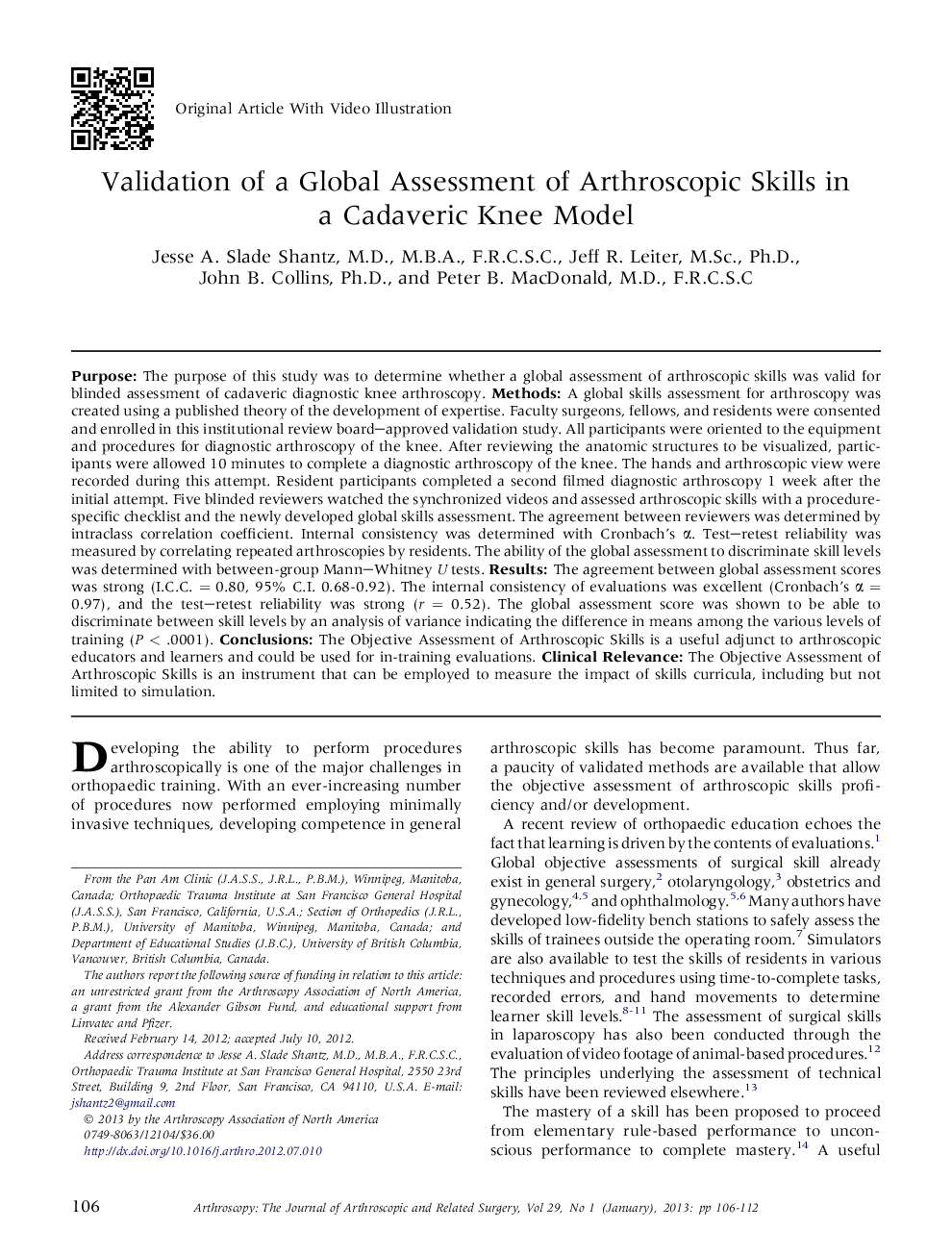| Article ID | Journal | Published Year | Pages | File Type |
|---|---|---|---|---|
| 4043968 | Arthroscopy: The Journal of Arthroscopic & Related Surgery | 2013 | 7 Pages |
PurposeThe purpose of this study was to determine whether a global assessment of arthroscopic skills was valid for blinded assessment of cadaveric diagnostic knee arthroscopy.MethodsA global skills assessment for arthroscopy was created using a published theory of the development of expertise. Faculty surgeons, fellows, and residents were consented and enrolled in this institutional review board–approved validation study. All participants were oriented to the equipment and procedures for diagnostic arthroscopy of the knee. After reviewing the anatomic structures to be visualized, participants were allowed 10 minutes to complete a diagnostic arthroscopy of the knee. The hands and arthroscopic view were recorded during this attempt. Resident participants completed a second filmed diagnostic arthroscopy 1 week after the initial attempt. Five blinded reviewers watched the synchronized videos and assessed arthroscopic skills with a procedure-specific checklist and the newly developed global skills assessment. The agreement between reviewers was determined by intraclass correlation coefficient. Internal consistency was determined with Cronbach's α. Test–retest reliability was measured by correlating repeated arthroscopies by residents. The ability of the global assessment to discriminate skill levels was determined with between-group Mann–Whitney U tests.ResultsThe agreement between global assessment scores was strong (I.C.C. = 0.80, 95% C.I. 0.68-0.92). The internal consistency of evaluations was excellent (Cronbach's α = 0.97), and the test–retest reliability was strong (r = 0.52). The global assessment score was shown to be able to discriminate between skill levels by an analysis of variance indicating the difference in means among the various levels of training (P < .0001).ConclusionsThe Objective Assessment of Arthroscopic Skills is a useful adjunct to arthroscopic educators and learners and could be used for in-training evaluations.Clinical RelevanceThe Objective Assessment of Arthroscopic Skills is an instrument that can be employed to measure the impact of skills curricula, including but not limited to simulation.
